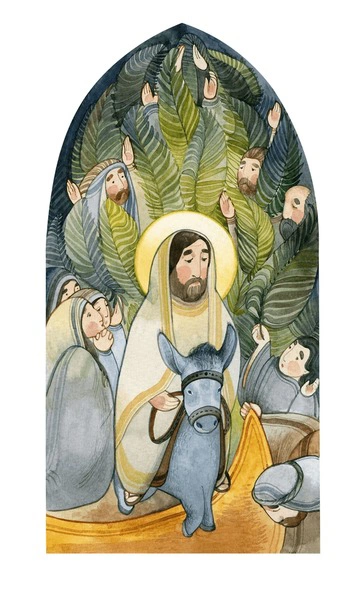
From Dust to Dignity: Embracing the Call to Praise in Psalm 113
Elevating the vulnerable demonstrates compassion and hope, as shown in Psalm 113. This article explores how praising God connects us to His eternal purpose and encourages us to live out His love, lifting those in need.
Joshua Brooks
26/11/2024 - 6 months ago

The Power of Praise
Praise is a fundamental aspect of the human experience, a universal expression that transcends cultures and languages. In the Christian tradition, praising the Lord is a call to recognize His greatness and His works. Psalm 113 beautifully encapsulates this by inviting us to honor God from sunrise to sunset. It underscores the timelessness of God's presence, urging believers to acknowledge His sovereignty throughout the day.
The act of praising God is not just a ritual; it is a heartfelt response to His mercy and grace. When we praise the Lord, we are reminded of His unwavering love and compassion. This practice encourages us to shift our focus from life's challenges to God's eternal promises, reinforcing our faith and bringing peace to our hearts.
For those with limited educational backgrounds, understanding the simple yet profound truth of God’s love and power can be life-changing. Praise becomes a bridge that connects individuals to a greater purpose, reminding them that they are part of a divine story that spans from creation to eternity. It's a reminder that no matter where we are in life, the name of the Lord is worthy of our praise.
- Read Also: Praising God: A Universal Call to Worship
God's Compassion for the Vulnerable
Psalm 113 also highlights God's compassion for the vulnerable, emphasizing His role in lifting the poor from the dust and the needy from the ash heap. This imagery is powerful, portraying a God who is deeply concerned with the plight of the marginalized. It speaks to His character as a loving and just deity who intervenes in human affairs to restore dignity and hope.
The message here is clear: God's love is not limited to the powerful and privileged. Instead, He reaches out to those who are often overlooked by society. By elevating the vulnerable, God sets an example for His followers, demonstrating what true compassion and justice look like. This aspect of God’s nature encourages Christians to act similarly, being agents of change and hope in their communities.
Understanding this truth can inspire those with lesser educational opportunities to see their worth and potential in God’s eyes. It affirms that everyone, regardless of their social standing, is precious and deserving of love and respect. This knowledge provides strength and encouragement, fostering a sense of belonging and purpose in the larger tapestry of God’s creation.
The Eternal Call to Praise
From the rising of the sun to its setting, the call to praise the Lord is an eternal invitation. It signifies a continuous act, not confined to a particular time or place. This ongoing praise reflects the unchanging nature of God and His eternal goodness. It reminds believers that God's presence is constant, offering comfort and reassurance in every moment of life.
For many, this call to unceasing praise is a source of hope and strength. It encourages individuals to cultivate a mindset of gratitude, recognizing God's hand in every aspect of their lives. By maintaining a posture of praise, believers can find joy and contentment, even amidst life's trials and tribulations.
This message is particularly empowering for adults with lower educational backgrounds, as it simplifies the profound truth of God’s constant presence. It reassures them that God's love and grace are not contingent upon worldly achievements but are freely given to all who seek Him. This eternal call to praise becomes a source of empowerment, fostering a deeper connection with God and His purposes.
Living Out God's Love
Living out the principles found in Psalm 113 involves more than just verbal praise; it requires action. Believers are called to embody God’s love and compassion in their daily lives, reflecting His character to those around them. This means actively seeking ways to lift others, especially the poor and needy, in both word and deed.
For Christians, this call to action is a reflection of their faith in practice. It's about being the hands and feet of Jesus in a world that desperately needs His touch. Serving others, advocating for justice, and showing kindness are tangible ways to live out the praise we offer to God. These actions become a testament to God’s transformative power in our lives.
By embracing this call, individuals can bring the message of Psalm 113 to life, demonstrating that elevating the vulnerable is a powerful expression of compassion and hope. This approach not only enriches the lives of those being served but also deepens the faith of the servant, creating a ripple effect of God’s love throughout the community.




















